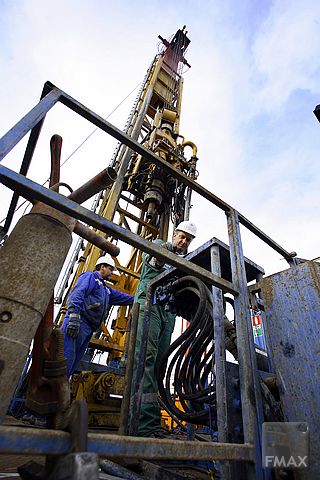Five to ten percent of all industrial accidents are caused by language problems, dr. Paul Lindhout states in his doctoral thesis. Low-cost measures can control the risks.
“It’s quicker to train a monkey”, Sybil Fawlty sarcastically remarks after witnessing her husband Basil desperately attempting to explain the details of serving to their new Spanish waiter, Manuel. But “he’s cheap and keen to learn, dear”, Basil retorts. In the BBC TV series, ‘Fawlty Towers’, the intractable language problems portrayed were hugely entertaining, yet imagine such misunderstandings occurring at oil refineries or in hazardous chemical industries. That’s a lot less funny and potentially seriously dangerous.
Recall the accident that happened in the Belgian coal mine near Marcinelle on 8 August 1956. Italian miners were working together with French- and Flemish-speaking Belgians some thousand metres underground when an order was given to halt and not load a coal cart into an elevator. An Italian miner, who didn’t understand French, passed the telephone to a Belgian colleague and then proceeded to load the elevator. When the elevator was suddenly put in motion, the coal cart, which was protruding halfway out of the elevator cage, rammed a metal beam. The beam subsequently cut some high voltage power cables and pierced an oil reservoir. Within seconds a fire set the entire mine ablaze, killing 267 miners.
Dr. Paul Lindhout works as a safety inspector in industries that work with dangerous chemicals. He completed the Moshe (Management of Safety Health & Environment) program at Delft Toptech and wrote his thesis on language-related risks in the workplace. While working as an inspector, he once noticed that at an industrial depot, acids and base materials were stored next to each other, despite explicit rules forbidding such practices. Whenever he reminded the personnel of the potential hazards, they would scurry away to correct the error. But a year later, the same situation persisted. It then dawned on Lindhout that perhaps the workers simply did not understand the safety regulations being handed down to them.
Lindhout, a placid man sporting a thin, grey beard, investigated more than 180 reports of industrial accidents in the Netherlands for the period 2002-2008, looking for language-related causes. He found language as the prime cause in five percent of the cases, while in up to ten percent of the accidents language problems played a role.
“It’s not that companies don’t acknowledge the problem”, Lindhout says. “But there is a large gap between knowing about the problem and solving it.”
Most Dutch companies make translations of their safety procedures readily available to their non-Dutch personnel. But hardly anyone ever checks if the personnel actually comprehend this information. The translations may be too difficult to read for migrant workers with little education, for example.
The top ten language-related problems identified by Lindhout include: misunderstandings, deviation from instructions, unwanted inactivity, underestimation of dangers, insufficient experience, insufficient education and violation of rules.
Lindhout suggests measures to prevent such Babylonian breakdowns at three different levels: language, supervision and personnel policy.
Safety instructions should be written on an intellectual level that is comprehensible for the targeted audience. Computer text analysis tools, Lindhout adds, can gauge readability levels automatically.
Just handing out flyers – even ones that are well-written and in the proper language – does not guarantee the transfer of information. It would help to check the degree of comprehension or to have migrant worker groups accompanied by a bilingual foreman who does understand the safety issues on site.
And finally, the personnel department should check the language skills of their personnel, and not assign those whose comprehension of safety issues is hindered to safety-critical areas.
Chapters of Lindhout’s thesis have been published in various specialised journals, and thus far the feedback has been positive. People in industry are interested in sharing ‘best practices’, like for example establishing one or two common languages as the working languages on the site, instead of endless translations. Such practices are not very expensive and might virtually eliminate the Babylonian-like language problems. Moreover, this is a problem that is likely to become more frequent and more widespread in the coming years, as a consequence of growing and much-needed work migration. Manuel, at the Fawlty Towers hotel, was merely one of the first to arrive: “I come from Barcelona. I know nutting.”
Paul Lindhout, ‘Taalproblemen bij BRZO- en Arie bedrijven, een onderschat gevaar?’, 10 May 2010, with an extensive executive summary in English. PhD-supervisor: Professor Ben Ale.
Het Openbaar Ministerie in Keulen maakte dit zaterdag bekend. De namen van de verdachten zijn opgedoken in stukken die eerder in beslag waren genomen bij een bemiddelingsbureau in de buurt van Keulen.
De directeur van deze ‘Doktorfabrik’ werd vorig jaar veroordeeld tot drieënhalf jaar celstraf en 75 duizend euro boete. Hij ontving duizenden euro’s van mensen voor wie hij een promotieplaats bij een universiteit regelde. Een deel van dat geld gebruikte hij als steekpenningen.
Een rechtenprofessor van de Leibniz Universiteit in Hannover bekende dat hij in totaal ruim 150 duizend euro van het bureau had ontvangen. Hij kreeg drie jaar celstraf. Een voormalige studente van hem moest een boete van 1800 euro betalen. In ruil voor goede cijfers en een baan aan de universiteit had ze vijf jaar lang een seksuele verhouding met de hoogleraar.
In de grote hoeveelheid in beslag genomen stukken – het bemiddelingsbureau heeft twintig jaar bestaan – werden de namen van ongeveer honderd buitengewoon hoogleraren en docenten gevonden. Volgens de nieuwssite Focus werken (of werkten) ze bij veertien Duitse universiteiten, waaronder de Freie Universität Berlin.
De Süddeutsche Zeitung meldt dat er in Duitsland een dozijn bureaus zijn die promovendi op verschillende manieren bijstaan. Niet alleen met het zoeken naar een promotieplaats, maar ook met het vinden van een onderwerp en met onderzoekswerk. Harde bewijzen van smeergeld waren er tot nog toe niet. De Duitse belangenvereniging van hoogleraren verlangt scherpere regels. Ze wil dat kandidaten onder ede verklaren dat hun promotie zonder ongeoorloofde hulp tot stand is gekomen.



Comments are closed.